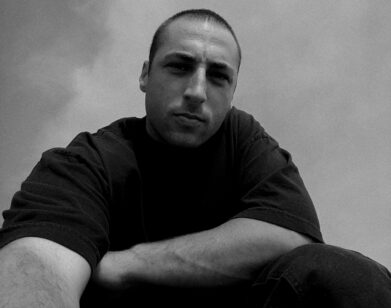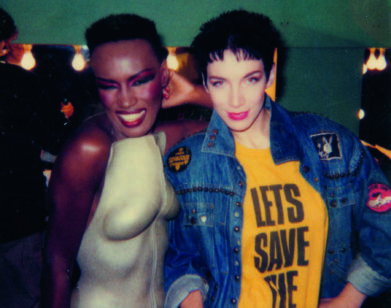IN CONVERSATION
Gospel Legend Pastor T.L. Barrett Gives Jim James a Sailing Lesson
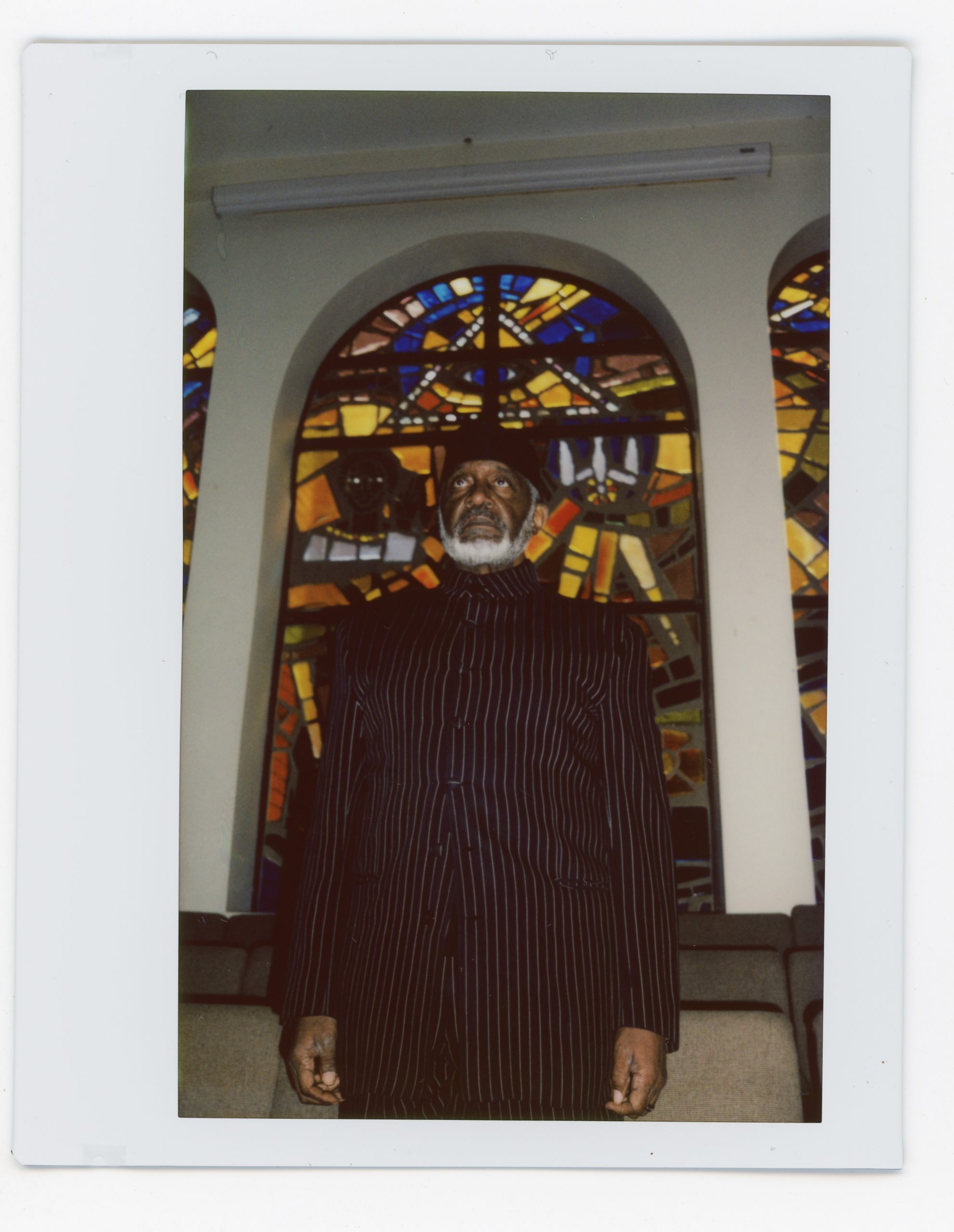
Photos of Pastor T.L. Barrett by Stephen Arndt.
“First off, I didn’t know about ‘sampling.’ I thought Kanye was listening to my music,” says Pastor T.L. Barrett with a chuckle. From his perch in front of a stained glass window in his Chicago pulpit, the Pastor recalls the moment that he was approached with a request to use “Father I Stretch My Hands,” a soaring gospel number of Barrett’s, in Kanye West’s chart-topping album The Life of Pablo. “So just I said, ‘I hope he likes it.’” Since they were written and recorded in the 1970s, Barrett’s soaring gospel works, featuring the chill-inducing vocal horsepower of Chicago’s 45-piece Youth for Christ Choir, circulated primarily among the city’s devout parishioners. But today, the a 78-year-old pentecostal preacher’s recording have resurfaced, reaching a far broader swath of listeners. Barrett’s resurgence began in 2006, when Rob Sevier, the founder of the archival record label Numero Group, unearthed the Pastor’s ecstatic, tectonic album Like a Ship (1971) while digging through crates at a flea market. The title track made its way onto one of Numero’s compilation albums, and has since entered the collective bloodstream via a number of covers and samples by talents as far-ranging as Ye, Leon Bridges, and DJ Khaled.
Barrett’s recent mainstream acclaim does little to illuminate the decades of activism and artist that preceded it. A self-taught musician who ran community campaigns for the Rev. Jesse Jackson and who counts Aretha Franklin among his relatives, Barrett has been a fixture in Chicago’s South Side communities for over half a century. There, he continues to lead the same congregation (which has included soul icons like Donny Hathaway and two members of Earth, Wind and Fire), facilitate youth groups, and sponsor high school graduates. Recently, Numero released I Shall Wear A Crown, the first in-depth exploration of Barrett’s oeuvre. The compendium of five LPs and recorded sermons spans the entirety of his musical collaboration with the Youth for Christ Choir from the ‘60s through the ‘80s. Despite their vintage, the compilation’s 50-plus tracks blister with an urgency that hasn’t dissipated in the slightest over the years. That, as Barrett tells his longtime fan, the rock musician Jim James here, is the secret of Soul music.
———
JIM JAMES: How’s it going, Pastor?
PASTOR T.L. BARRETT: Real good, Jim, I’m calling you from Chicago. How are you doing?
JAMES: Doing really good. I’m in Los Angeles right now. I just want to tell you how stoked I am to talk to you, and how much your music’s meant to me. I don’t have the words to express how much joy it’s brought to me.
BARRETT: That’s one of the nicest things anyone has ever said to me—and it means a lot coming from you. I just heard some of your music yesterday, and it’s so rich and full. So, I thank you.
JAMES: Thanks for listening. I love turning people on to your music. Whenever I play something from one of your records, it’s crazy how instantaneous the reaction is. No matter who the person is, you see it hit them almost immediately.
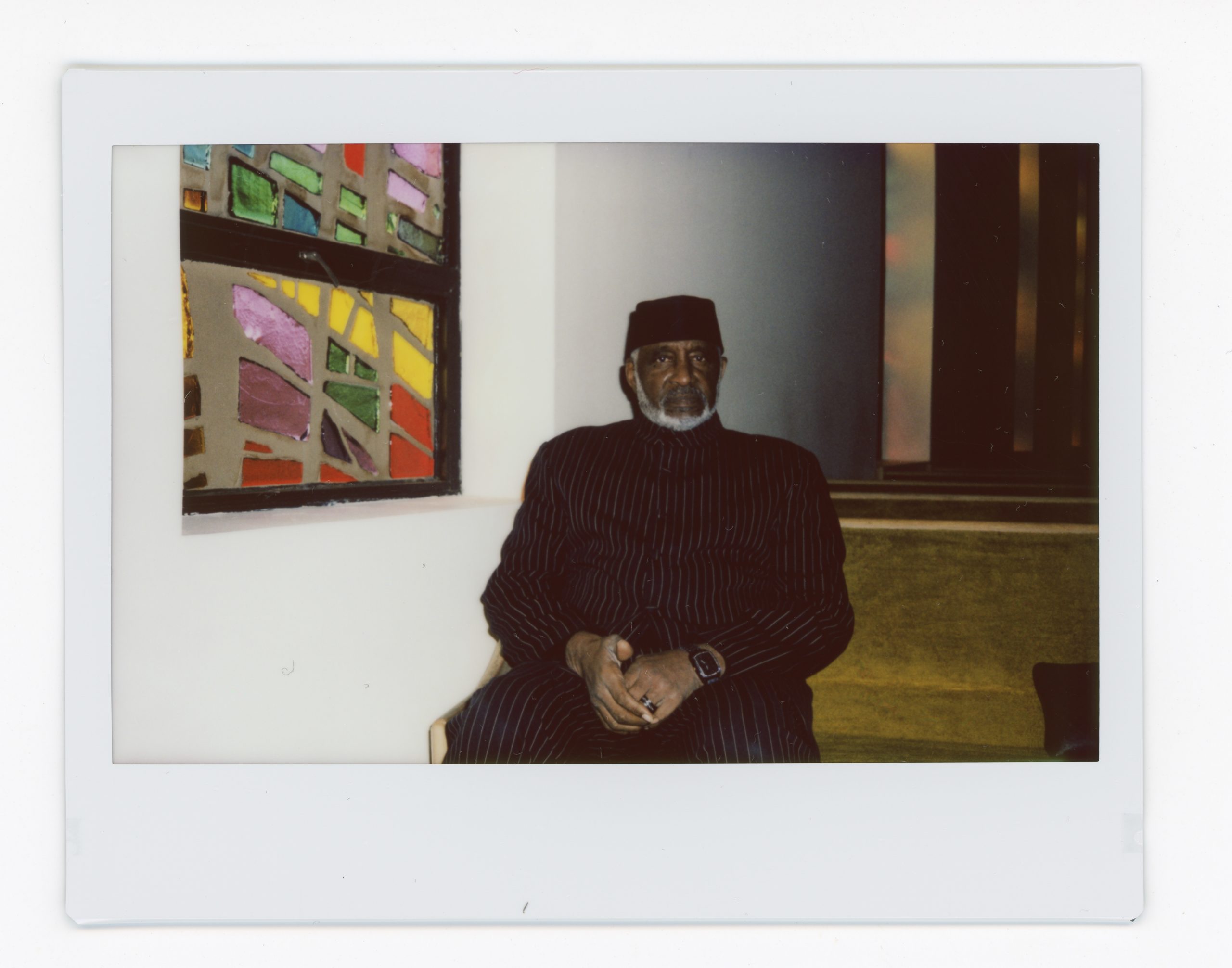
BARRETT: I’m happy to hear that. You know, that which comes from the heart reaches the heart. It obliterates the race issue, financial distances, all differences. It doesn’t matter where you come from—music will touch you if it comes from deep in there. Soul music is not relegated to the Black experience—classical music can be Soul music. Your music is soulful. If you make something that inspires, then you’re a great musician.
JAMES: That’s one of the things I love most about your music. You can hear that joy and inspiration pouring out of the youth choir. I had never heard the power of a choir like that. I remember reading an interview with you, in which some people were giving you flack for not hiring a professional choir, and you said, “I want the sound of the spirit of the youth.” That swept me away.
BARRETT: You see, the professionals have a pedestal. Those young people had no pedestals to launch from. Along with a pedestal comes certain attitudes and preconceived notions, and when you don’t have that, you can dig from the heart and the soul. That’s what I sought from those young people, and they brought it.
JAMES: They really did. One thing I love about your music is all the psychedelic twists and turns it takes. So many of your songs follow a normal path. Did you—
BARRETT: Plan it? No. I was always serendipitous in my composing—no planning, just out of the blue.
JAMES: I love that. I always say that when we’re in the studio, you have to leave room for the spirit to enter the music. If I have an idea for a song, half of the joy is playing it with other people, because out of nowhere, another idea will take shape, and things start to move in another direction. A lot of time, you can’t even put a name to where it comes from. To me, it’s about god and love. It’s a very sacred thing.
BARRETT: A wise seer said to me many years ago, “We go into a place of thunderous silence.” I hadn’t heard that term before. I began to think of the space I enter when I compose music as one of “thunderous silence.” No one can hear it—it’s the thunder within us.
INTERVIEW: Pastor, how did you feel when Kanye West sampled “Father, I Stretch My Hands” on The Life of Pablo?
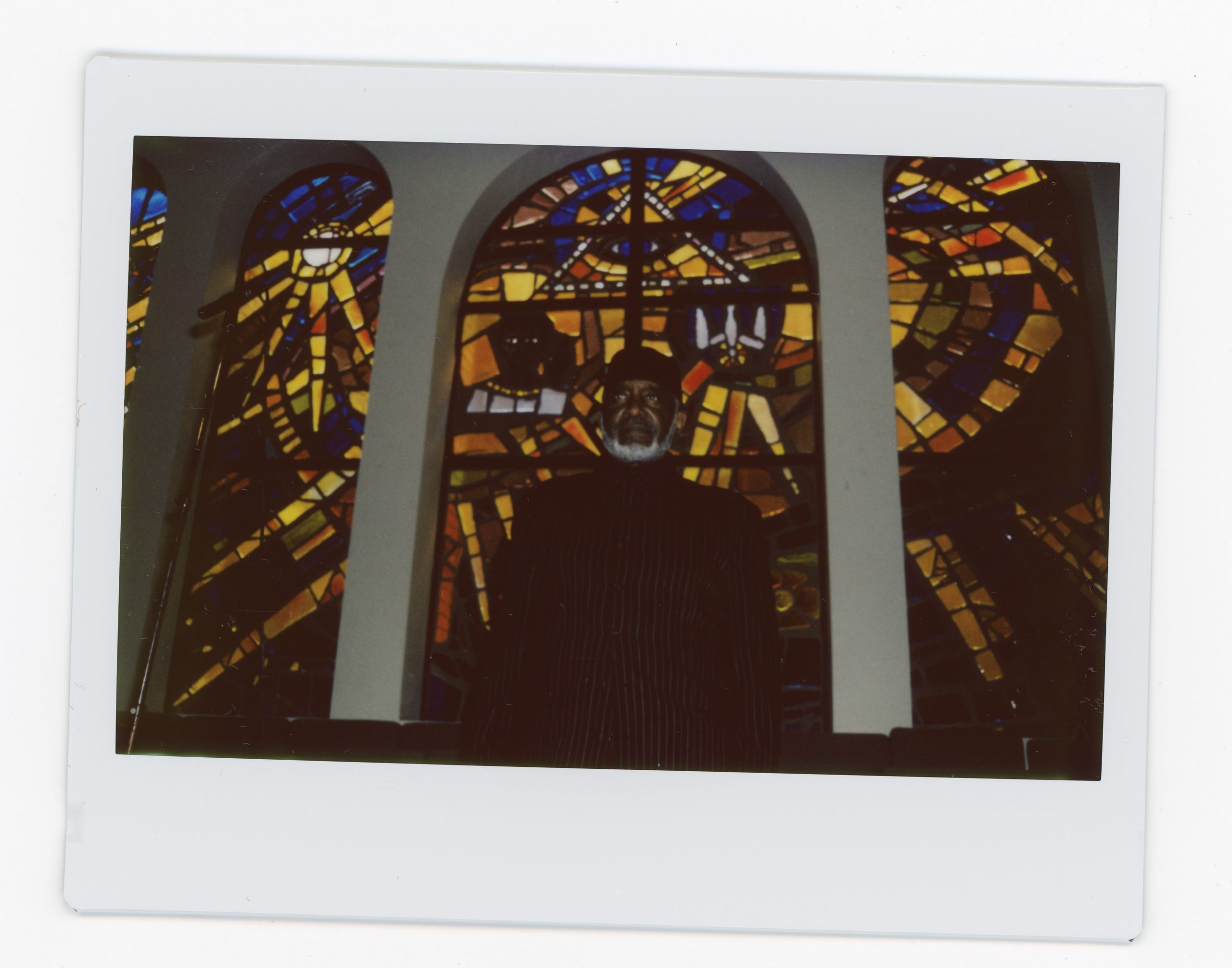
BARRETT: Well first off, I didn’t know about “sampling.” I thought he was listening to my music, so I said, “I hope he likes it.” He’s a child of Chicago, so it’s an honor.
JAMES: Pastor, could you talk a bit about your earliest experiences leading a musical group of this size, and how you became this involved in music?
BARRETT: Long story short, they kicked me out of high school and wouldn’t allow me to graduate. I remember the counselor telling me, “You will never, ever amount to anything.” I decided not to let that lady’s negative opinion become a positive fact. I made a deal with god that I would keep my body clean and I my mind keen. I didn’t want to end my time on earth without revealing all the jewels that god put in me. I tell young people that they’re ships full of precious cargo. You cannot deprive society of the gifts and the goods that god has embedded within you. All we need is a sail. That counselor was my sail. Are you following me, Jim?
JAMES: I am. We’re nothing without that sail.
BARRETT: That’s right, and that’s what my song “Like a Ship (Without a Sail)” is about. Decades later, I adopted that high school and gave away six brand new cars to the valedictorians of the graduating classes. The school inducted me into the Hall of Fame alongside Sam Cooke, Nat “King” Cole, and Dinah Washington. How do you like that?
JAMES: That’s quite an origin story. When you’re in your kitchen or in the car, what do you like to listen to?
BARRETT: Earth, Wind, and Fire. The greatest boyband ever. Their horn sections are on my albums. They came to my youth group 40 years ago, and I became the spiritual counselor for that group. I did the eulogy for Maurice White’s mother and for Philip Bailey’s mother.
JAMES: What do you say to people who struggle to find the kind of faith that you found when the counselor told you that you’d never amount to anything?
BARRETT: Number one, you have to have a credo. Life is like a pitcher in a baseball game. It throws real fast and real treacherous curveballs. So, my credo is, it’s not how they make it, it’s how I take it. Life has you in its grip until you realize that you are the master. What happens to you is not as important as how you respond to what happens to you. As long as you know that, you’ll never be defeated.
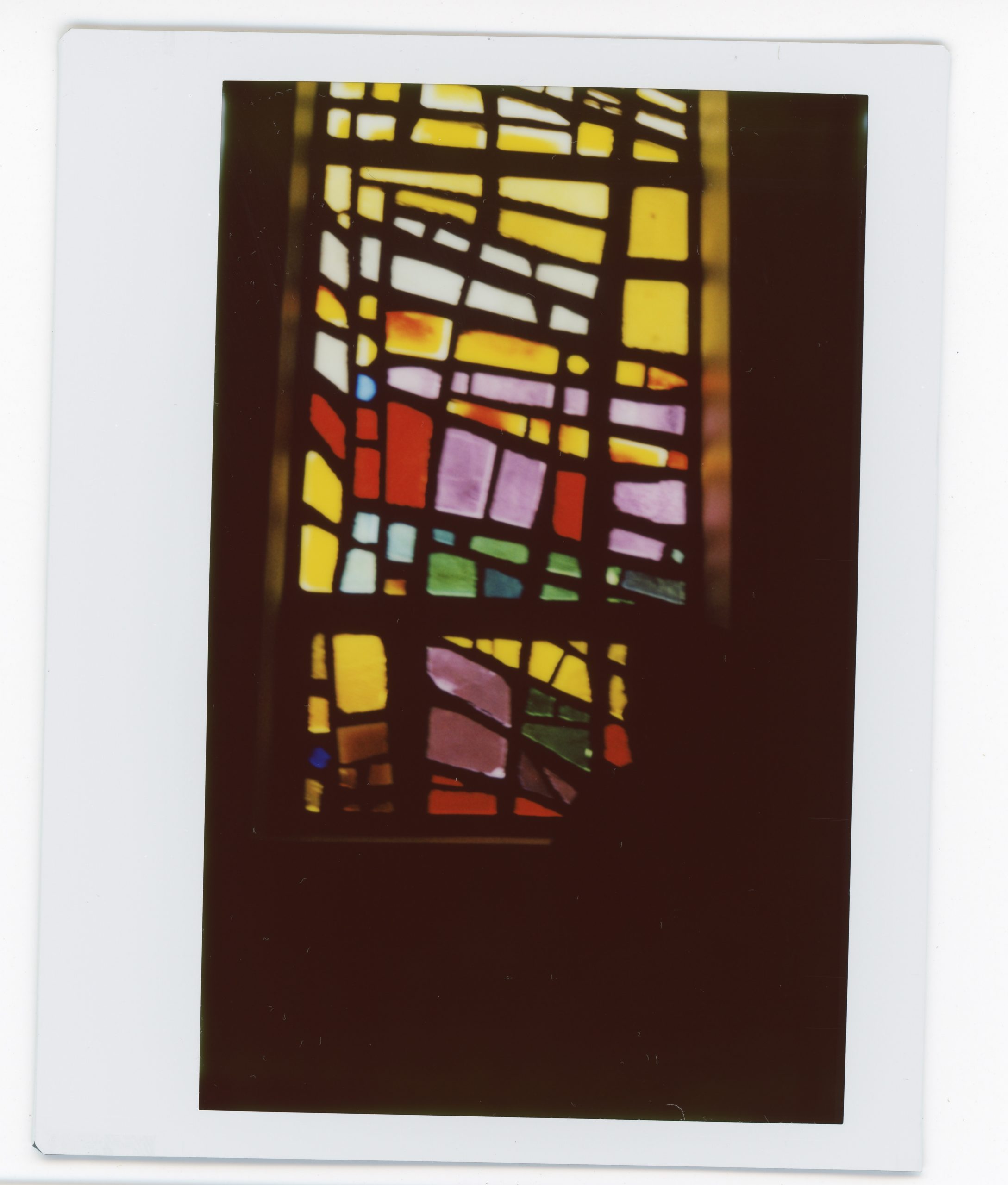
JAMES: In the process of recording, are there any interactions or memories that you really hold on to?
BARRETT: There was a blind young man who heard about us, and made his way to our youth meeting. When I saw him walking down the aisle and bumping into people, I went to the piano and I wrote this song for him. Afterward, he came the studio with us while we recorded the song. The group would guide him to his place in the choir, and he would sing with us. That made such a difference in his life. He passed away, but he stayed with us for several years. We always used to close out our sessions with a song I wrote. [singing] “Oh, what a day, this has been. I’ve had a chance to be somebody’s friend.”
JAMES: I love that song. That’s one of my favorite recordings that you’ve done. It’s beautiful.
BARRETT: That’s how you have a nice day. When you cause a nice day.
JAMES: I love that. I mean, I could sit here and talk for hours. Thank you so much Pastor.
BARRETT: Thank you for the opportunity. I’ll put you on my list.

